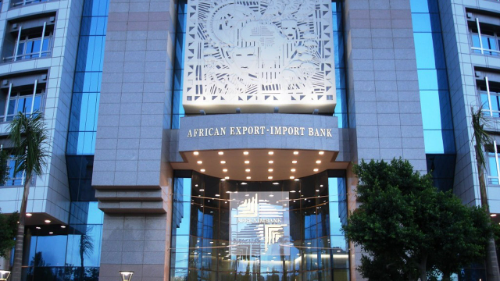Fitch Downgrades Afreximbank Credit Rating With Outlook Negative

TLDR
- Fitch Ratings has downgraded African Export-Import Bank’s (Afreximbank) Long-Term Issuer Default Rating (IDR) to ‘BBB-’ from ‘BBB’ with a Negative Outlook
- The bank’s Short-Term IDR was also downgraded to ‘F3’ from ‘F2’ while the ratings on its Global Medium-Term Note Programme and other debt issuances were cut to ‘BBB-’
- The downgrade follows a rise in Afreximbank’s non-performing loans (NPLs), which reached 7.1% by end-2024 under Fitch’s methodology
Fitch Ratings has downgraded African Export-Import Bank’s (Afreximbank) Long-Term Issuer Default Rating (IDR) to ‘BBB-’ from ‘BBB’ with a Negative Outlook, citing increased solvency risks. The bank’s Short-Term IDR was also downgraded to ‘F3’ from ‘F2’, while the ratings on its Global Medium-Term Note Programme and other debt issuances were cut to ‘BBB-’.
The downgrade follows a rise in Afreximbank’s non-performing loans (NPLs), which reached 7.1% by end-2024 under Fitch’s methodology, above the 6% threshold considered ‘high risk’. In contrast, the bank reported an NPL ratio of 2.3%, excluding exposures to Ghana, Zambia, and South Sudan.
Fitch also revised its assessment of Afreximbank’s risk management from ‘moderate’ to ‘weak’, citing low transparency in loan reporting and misalignment with multilateral peers. The Negative Outlook reflects restructuring risk, particularly the potential inclusion of Afreximbank’s sovereign exposures in broader debt restructurings, which could weaken its perceived policy importance.
The rating is based on the bank’s Standalone Credit Profile (SCP) of ‘bbb-’, driven by a ‘bbb+’ solvency assessment and ‘a’ liquidity assessment. The bank’s exposure to a high-risk operating environment and weak credit quality among borrowers also factored into the downgrade.
Daba is Africa's leading investment platform for private and public markets. Download here
Key Takeaways
Afreximbank’s downgrade comes at a time when African supranational financial institutions face mounting pressure from rising sovereign credit risk and limited debt transparency. The ratings adjustment underscores challenges in balancing development mandates with risk exposure in volatile macroeconomic conditions. The downgrade was largely driven by differences between Fitch’s classification of non-performing loans and the bank’s own reporting under IFRS 9. Fitch reclassified exposures to Ghana (2.4%), South Sudan (2.1%), and Zambia (0.2%) as non-performing, pushing the calculated NPL ratio above the high-risk threshold. Despite the downgrade, Fitch maintains a ‘strong’ capitalisation assessment, supported by an equity-to-assets ratio of 19% and robust internal capital generation. Afreximbank also maintains a high collateralisation rate (84% of loans) and access to diverse funding lines, which help mitigate liquidity risk.

Next Frontier
Stay up to date on major news and events in African markets. Delivered weekly.
Pulse54
UDeep-dives into what’s old and new in Africa’s investment landscape. Delivered twice monthly.
Events
Sign up to stay informed about our regular webinars, product launches, and exhibitions.




